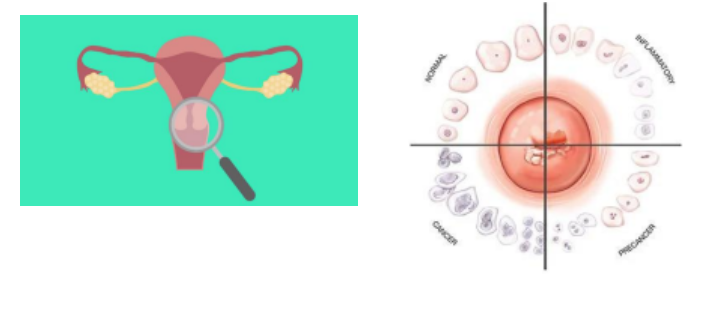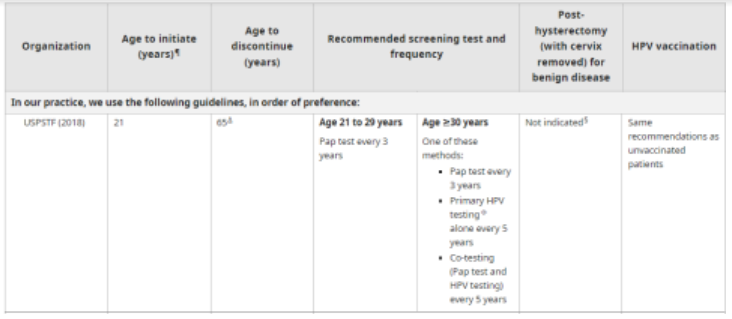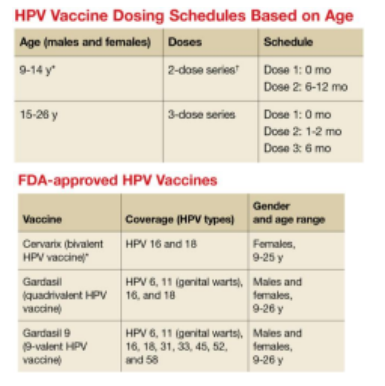Women's Health Wednesday: Cervical Cancer Month with Dr. Sonali Khond
Did you know that January is Cervical Cancer Awareness Month? Today’s woman dreamer, Dr. Sonali Khond is a primary care physician at Compass Medical and the current President-Elect of the Indian Medical Association of New England. For this week’s Women’s Health Wednesday, Sonali answers all of your key questions on cervical cancer, including causes, symptoms, screening and more. We urge you to learn more about this key women’s health topic.
WHAT IS CERVICAL CANCER?
Cervical cancer is a disease in which cancer cells arise in the cervix, which connects the uterus to the vagina.
Cervical cancer was once a leading cause of cancer death for women in the United States. Today, screening and prevention have greatly reduced the impact of this form of cancer. Still, nearly 14,100 women in the United States received a diagnosis of cervical cancer and nearly 4,300 died from the disease last year, according to the National Cancer Institute.
What are the symptoms of cervical cancer?
Symptoms of cervical cancer often do not appear until the disease has progressed, which is why early screening and detection is so important. These symptoms may include abnormal vaginal bleeding, such as bleeding after sex, abnormal vaginal discharge or pain during intercourse.
What are the causes of cervical cancer?
HPV is almost always the cause of cervical cancer
What are the screening tests for cervical cancer?
The HPV test and the Pap test are screening tests that can help prevent cervical cancer or diagnosed early.
1. The human papillomavirus (HPV) test looks for the virus that can cause cell changes on the cervix.
2. The Pap test (or Pap smear) looks for precancers, which are cell changes on the cervix that might become cervical cancer if they are not treated appropriately.
Revised screening guidelines
USPSTF: United States Preventive Services Task Force;
These guidelines are intended for the general population and are not intended for patients with a history of cervical cancer, high-grade cervical precancers, DES in utero exposure, or who are immunocompromised (ex- HIV infection).
If you are over 65 and have had normal screening test results for several years and either have not had a cervical precancer in the past or have had a total hysterectomy for non-cancerous conditions such as fibroids, your doctor may tell you that you do not need to be screened anymore.
What are the preventive measures for cervical cancer?
HPV Vaccine
The HPV vaccine protects against the types of HPV that most often cause cervical cancers. HPV can also cause other kinds of cancer in both men and women.
However, some adults age 27 through 45 years who are not already vaccinated may decide to get the HPV vaccine after speaking with their doctor about their risk for new HPV infections and the possible benefits of vaccination. HPV vaccination in this age range provides less benefit, as more people have already been exposed.
Thank you Sonali for sharing this insight with us! We are excited to have you in our global women’s network!
Bio: Dr. Sonali Khond is a primary care physician at Compass Medical located in the town of Easton. She also serves as an assistant medical director at Southeast Rehabilitation & Skilled Care Center. Dr. Khond has graduated from Lokmanya Tilak Municipal Medical College in Mumbai, India, and has completed her residency from New York. Dr. Khond is honored to be part of the IMANE committee and strives to increase networking among the organization. Outside of the medical world, Dr. Khond’s hobbies include traveling, dancing, yoga, meditation.






